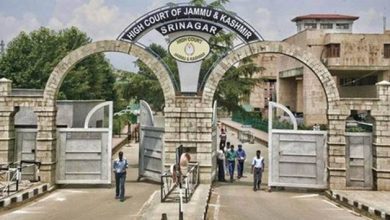Criticizing revocation of IIOJK’s special status, wishing Pakistan on its I-Day not an offence: Indian SC

New Delhi: The Indian Supreme Court has quashed a case against a college professor in Maharashtra for criticising the Modi government’s decision for illegally abrogating the occupied Jammu and Kashmir specific Article 370, describing the day on which the abrogation happened as ‘Black Day’ and for wishing Pakistan on its independence day.
According to Kashmir Media Service, the Indian top court was hearing the case of Javed Ahmad Hajam, a professor at a college in Kolhapur, who had in 2022 allegedly posted three messages on his WhatsApp status that said: “August 5-Black Day Jammu & Kashmir”, “14th August Happy Independence Day Pakistan” and “Article 370 was abrogated, we are not happy”.
A first information report was then registered against Hajam under Section 153(A) of the Indian Penal Code – which deals with promoting enmity between different groups – at the Hatkanangale police station in Kolhapur.
Hajam approached the Bombay High Court demanding that the case against him be quashed. On April 10, the High Court held that while the post on Pakistan’s Independence Day was not a crime under Section 153(A), the other posts attracted the offence.
The SC, however, said on Thursday that citizens have the right to criticise decisions made by the government and to extend good wishes to other countries on their respective independence days. A bench of Justices Abhay Oka and Ujjal Bhuyan said that describing the day on which Article 370 was abrogated as a “Black Day” was an expression of protest.
The Indian top court said the right to dissent should be respected. “But the protest or dissent must be within four corners of the modes permissible in a democratic setup,” the court added. The bench said that the petitioner had not at all crossed the line.
It is worth mentioning that the court has to intervene in a matter as simple as wishing Pakistan on its Independence Day or expressing just a difference of opinion with the official stance speaks volumes about the extremism and discrimination that Muslims are facing in Modi’s India.








